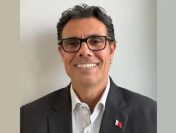As marketing, advertising and media professionals gear up for achieving their goals for 2016, professional social networking site LinkedIn has initiated a series that looks at how to bridge skill gaps.
In the first post from the series, LinkedIn asked successful business leaders about the skills they’re honing in 2016. In addition to mastering hard skills such as public speaking and coding, more than 50 LinkedIn Influencers said they are also cultivating softer skills, such as self-awareness, positivity, humility, empathy, and even the ability to find work-life balance.
Some interesting advice in the post includes:
Manage your career the way you’d perfect your backhand:
On Necker Island, Richard Branson works with a tennis coach to improve his backhand. By focusing on recovery, early preparation, confidence, and practice, the Virgin Group founder is perfecting his strokes the same way he has developed a winning strategy in business:
“A key lesson that applies far beyond tennis is to treat each point separately. Forget the last mistake and move onto the next challenge.” — Richard Branson
Offering advice is one of the best leadership skills you can have:
Part of Mary Barra’s job as the CEO of General Motors Company is to coach future leaders. In grooming the next generation, however, Barra has noticed this: “The word ‘feedback’ can trigger ‘fight, flight or freeze’ instincts. Substituting ‘advice’ for ‘feedback’ can make coaching more impactful.” Other than being willing to offer honest advice, these are some of the other leadership skills that Barra has developed over the years.
Replace paranoia with positivity:
Robert Herjavec of ABC’s ‘Shark Tank’ used to believe that entrepreneurs had to be paranoid in order to succeed. As someone who used to imagine worst-case scenarios, Herjavec says he is now resolving to ask instead, “What’s the best that can happen?”
“My best business decisions have been made when I’ve leaned in, taken the leap outside of my comfort zone and been fueled by a positive focus.” — Robert Herjavec
Understand why humility in the workplace matters more than ever:
Of all the traits that can derail careers, EY’s Bob Patton says selfish behavior is the primary culprit: “Rarely do I see a career ruined due to the lack of ‘hard skills.’ More often than not, when a career goes south, it is an issue of self — self-absorption, self-interested, or self-serving… I have seen people get hurt, teams unravel and critical initiatives fail all because of one person’s self-centered posturing.” In outlining three ways you can change your behavior, Patton describes the greatest skill you can ever learn: the art of selflessness.





